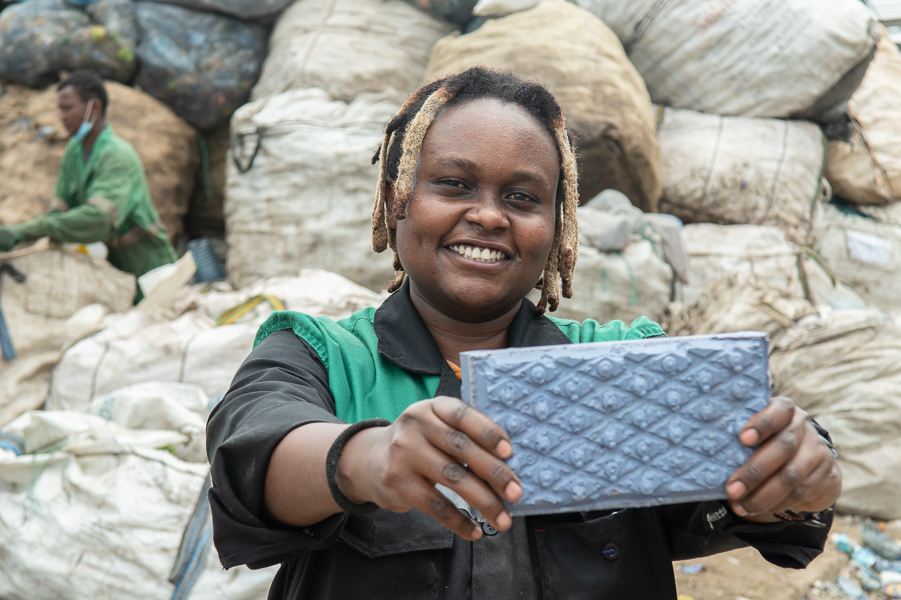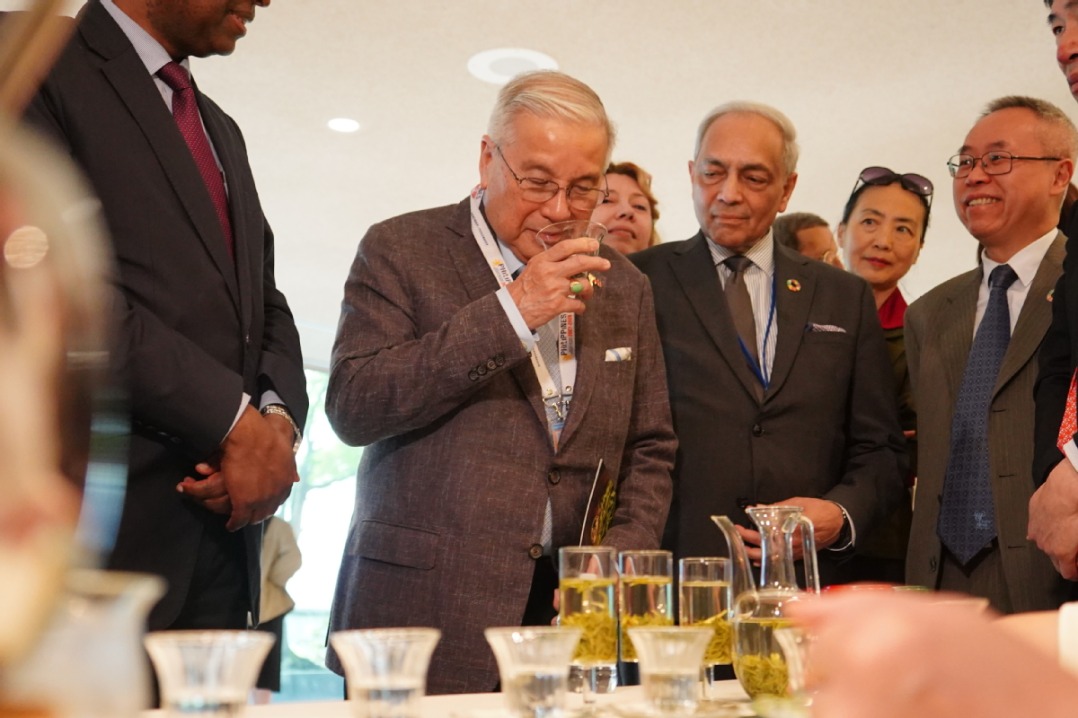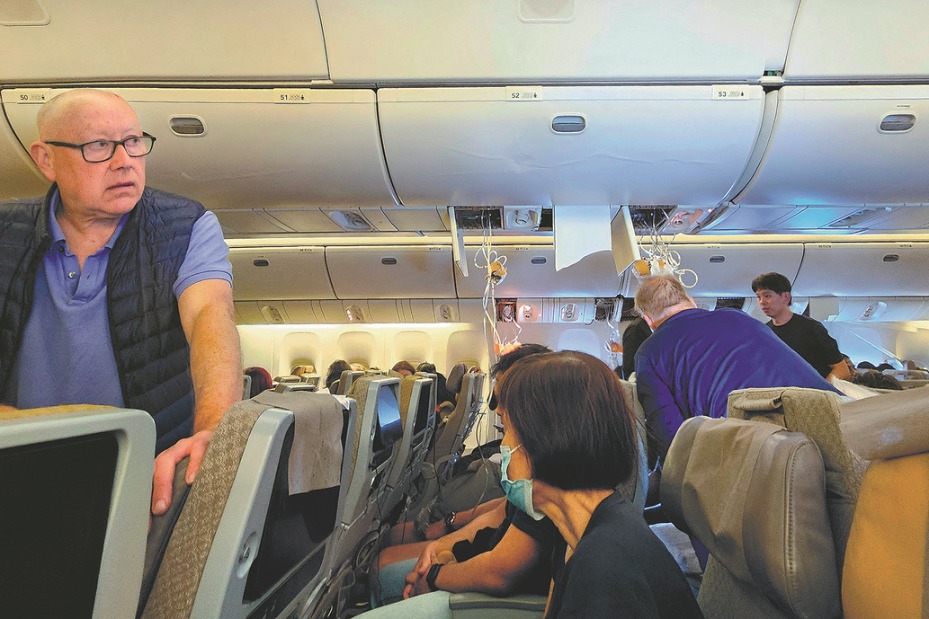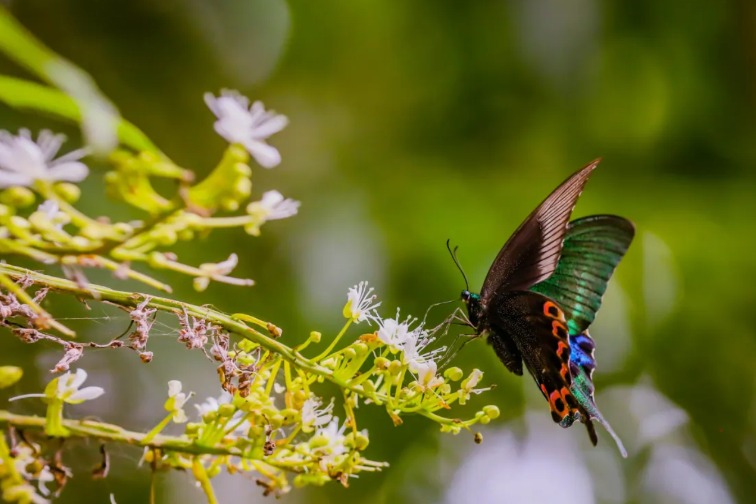Kenyan ecopreneur among global winners of UN's earth prize
By Edith Mutethya in Nairobi, Kenya | chinadaily.com.cn | Updated: 2020-12-16 20:11

When Nzambi Matee left her job to venture into ecopreneurship in 2017, many discouraged her.
Today she is being celebrated not only by her family members and friends but by the entire continent and the globe, for being the 2020 African winner of the United Nations Environment Program's Young Champions of Earth award.
The prize is awarded annually to seven entrepreneurs under the age of 30 with bold ideas for sustainable environmental change. It provides seed funding and mentorship to promising environmentalists as they tackle the world's most pressing challenges.
Matee, who was recognized for her efforts to innovatively solve the challenge of plastics in Kenya, terms the prize as a recognition of her hard work with her team of nine. She said it has publicized her products and expects to get more customers.
Matee is the founder of Gjenge Makers, a social enterprise that recycles and upcycles plastic waste into construction products, such as paving bricks, paving tiles, hatch and manhole covers.
In her workshop based in Kenya's capital, Nairobi, the plastics are turned into the construction materials. Her enterprise churns out 1,500 plastic pavers daily.
The cost of the pavers range from $8-$18 per square meter, depending on the size, color and design.
The Gjenge pavers have a melting point of over 350C, making them much stronger than their concrete equivalents.
Due to their durability and affordability, the products are greatly valued by schools and homeowners.
Mukuru Skills Training Center in Nairobi's Mukuru Kayaba slum is one of the schools that uses the pavers. Its playground and the paths between classrooms are covered by colorful paving bricks.
"We plan to pave all around the school. It's a cheaper solution and we are grateful to Nzambi. Young people need to be motivated and sensitized about how to care for the environment, while at the same time making money," Anne Muthoni, the program coordinator in the training center, said.
Matee, who majored in material science and worked as an engineer in Kenya's oil industry, was inspired to launch her business after routinely coming across plastic bags strewn along Nairobi's streets.
When her immediate family members and friends learned of her decision to leave a good job and venture into the business, most of them didn't like the idea and thought it was a mistake.
However, Matee had made up her mind and her vision was crystal clear. Equipped with passion and determination, she quit her job as a data analyst in 2017 and set up a small lab in her mother's back yard. There, she started creating and testing pavers, which were a combination of plastic and sand.
Through trial and error, Matee and her team learned that some plastics bind together better than others.
Her project was given a boost when she won a scholarship to attend a social entrepreneurship training program in the US.
With her paver samples packed in her luggage, she used the material labs at the University of Colorado-Boulder to further test and refine the ratios of sand to plastic.
Matee also used this opportunity to develop the machinery she would use to make the bricks.
Just like any other young business, she started experiencing challenges immediately in her mother's backyard. Neighbors complained about the noisy machine she was using.
She pleaded with the neighbors for one year's grace to develop the right ratios for her paving bricks. They agreed.
"I shut down my social life for a year, and put all my savings into this. My friends were worried," she said.
However, three years down the line, the friends and relatives appreciated her decision because the results were evident.
"The first time we produced a full batch of recycled plastic pavers, it was the best day ever. This was three years of hard work," she said.
Going forward, Matee looks forward to her enterprise being the leader in alternative building materials. She plans to expand to Nigeria, Uganda and Tanzania.
Matee encourages other young people to tackle environmental challenges at the local level. "The negative impact we are having on the environment is huge. It's up to us to make this reality better. Start with whatever local solution you can find and be consistent with it. The results will be amazing," she said.
Commenting on her win, Soraya Smaoun, who specializes in industrial production techniques with the UN program, said, "We must rethink how we manufacture industrial products and deal with them at the end of their useful life."
"Matee's innovation in the construction sector highlights the economic and environmental opportunities when we move from a linear economy, where products, once used, are discarded, to a circular one, where products and materials continue in the system for as long as possible," she added.
























